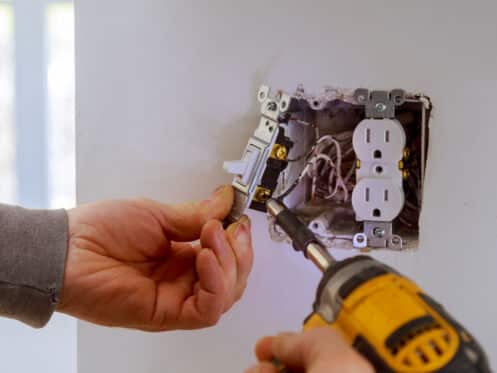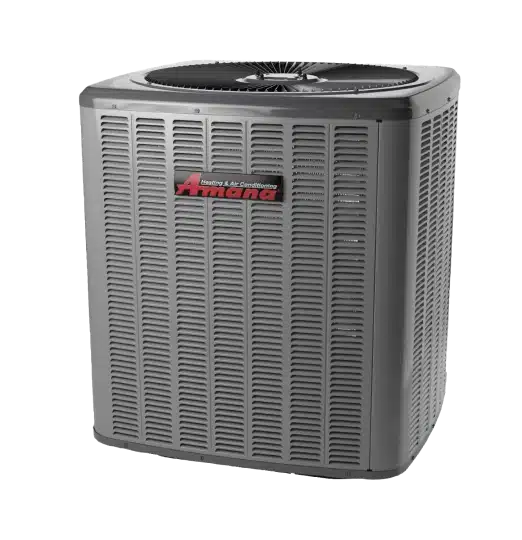Pet owners have the important responsibility of keeping their home environment safe and healthy for their pets. For many homeowners, this is no easy task. Each year, countless pets suffer injury or death after coming into contact with electrical cords, outlets, and other household hazards. According to a study by the American Pet Products Association (APPA), U.S. pet owners have spent over $14.6 Billion repairing or replacing electronic devices damaged as a result of their furry friends. The majority of pet owners have had to repair or replace at least three devices due to pet misbehavior, and over 70% of these pet misadventures require veterinary intervention or care.
Regardless of the risks, however, most pet owners look for ways to work around the hassle for the sake of their furry companions. According to a study from the American Psychiatric Association (APA), around 88% of U.S. families view their pets as part of the family. A look at some of the best tips for pet-proofing electrical hazards can help keep the environment safe for each occupant of the home.
Top Electrical Hazards for Pets
Pets are naturally inquisitive creatures prone to explore every nook and cranny of the house. Unfortunately, this tendency can also expose pets to electrical peril. The three most common types of hazards include electrical shock, accidental fires, or toxic chemical exposure. Electrical shock can occur when pets like dogs, cats, rabbits, or hamsters chew on electrical cords. These shocks can result in severe burns or damage to internal organs. Shock can also lead to comas or death. In addition to electrical cords, shock can also result from contact with electrical outlets.
Accidental fires can occur when pets tamper with frayed wires or faulty outlets. Once ignited, such fires can quickly spread throughout the home. As a result, household occupants can suffer burns or smoke inhalation. Smaller pets are also less likely to escape burning buildings, putting their lives at risk. In addition to fires, some electrical equipment contains components like transformers or electrochemical cells that release toxic chemicals if damaged. When pets ingest or inhale these substances, they can suffer from chemical poisoning and other health issues.
Top Electrical Safety Tips for Pet-Friendly Homes
Due to the ubiquity of modern technology, electrical hazards are common throughout today’s homes. Fortunately, pet owners can implement safeguards to protect their families. From covering power outlets to scheduling inspections, these practices provide the first defense against danger.
Keep Cords and Wires Out of Reach
Keep cords and electrical wires off the floor and away from the reach of your four-legged friends. According to the APPA, two-thirds of pet-related electrical accidents happen when animals get a hold of cords or devices and begin to chew on them. Not only can it result in toxic chemical exposure or electrocution, but chewing electronics is also a choking hazard. Keeping wires out of reach also helps prevent small animals from becoming entangled and dying from strangulation. Consider using professional guards or sleeves around power cords. You may also ask your veterinarian about a safe but bitter-tasting repellent to deter pets from chewing on electronics. If chewing and gnawing is a persistent problem among permanent electronics, you can also ask a trusted electrician to rewire these appliances to keep any power cables far from the grasp of pets.
Use Pet-Safe Outlet Covers
Invest in pet-safe outlet covers for any room that your pet frequently visits. These covers fit snugly over outlets and prevent curious pets from sticking their noses, paws, claws, or tails into power sources. Installing outlet covers offers a quick way to avoid the risk of electrocution or singed fur, and you can easily get these covers from a hardware retailer or your local electrician.
Avoid Using Extension Cords
Extension cords are tripping hazards and can also put your system at risk of electrical overload. If you must use an extension cord, ask your electrician to verify that its wattage rating is appropriate for the corresponding appliance. To prevent overloading the home circuit, avoid plugging cords into too many devices. You can ask your electrician to install a whole-home surge protector if you need to power several devices throughout the home. Always inspect an extension cord before use, and throw the cord away if it appears damaged or frayed. Once you are finished using the cord, coil it up neatly and store it away so that your pet does not trip or fall over unattended equipment.
Install Ground Fault Circuit Interrupter (GFCIs)
A ground fault circuit interrupter (GFCI) is a safety device that helps stop the flow of electricity if a device comes in contact with water. Many jurisdictions require GFCIs for outlets located in bathrooms and kitchens. Check with an electrician to ensure that your outlets are compliant with local regulations. While GFCIs help protect the home, you should still practice extreme caution near any source of water. For the best precaution, never use small appliances like blow dryers or curling irons near water. Playful animals can knock over these appliances and create a deadly situation for anyone in the room.
Monitor Space Heaters, Fans, and Other Small Appliances
Some pets like to snuggle near portable heaters or small fans that produce comfortable air. However, animals can knock these devices over and suffer injuries or burns as a result. Pets can also suffer accidental injuries from tripping over cords or cutting themselves with blades. Never leave portable appliances unattended, and stow away small heaters and fans once you have finished using them.
Create a Pet-Free Zone in the Home
It is important to create a pet-free space for the most important devices in your home. According to the APPA, over 59% of animal owners report that at least one pet has damaged their smartphones or other essential devices. By keeping these devices in a no-pet zone, you can protect the animal as well as your devices. Since 73% of pets are more destructive when they are bored, designate a safe play area for your pets instead. This play area can include chew toys or training stations that use positive reinforcement techniques. For example, some trainers recommend giving pets a treat each time they stay away from an electrical outlet. Physical barriers can also help protect pets from unsafe areas of the yard or outdoors.
Conduct an Emergency Drill
To maximize safety, it is also important to conduct annual emergency drills. This helps each member of the family understand the plan of action during fires or similar emergencies. Children and pets are often the most vulnerable during a crisis, so be sure to account for your animal companions during each practice drill.
Schedule Regular Electrical Inspections for the Home
Understanding electrical problems requires the expertise of a trained electrician. To keep your home safe, be sure to schedule an annual inspection for the home. For example, an electrician can check for frayed wires, loose connections, and exposed insulation and make repairs as needed. An electrician can check the functionality of outlets, switches, and fixtures as well as test the operation of life-saving GFCIs. Importantly, an electrician can also inspect your electrical panel or breaker box for proper labeling, adequate capacity, and any signs of wear or tear. The electrician can repair or upgrade your panel if necessary.
Get Help Today
Electrical safety is a top priority for pet owners. Unfortunately, you do not have to undergo this process alone. Accurate Home Services provides electrical services for homes in Crandall, Forney, Kaufman, Corsicana, Terrell, and surrounding areas. We offer electrical panel inspection and electrical repairs. Our electricians can also install surge protectors and ensure you have the right generator for your home. Whether you need light installation or help with your outlets or breaker box, our electricians have the expertise to get the job done. Contact Accurate Home Services today for your electrical needs.




